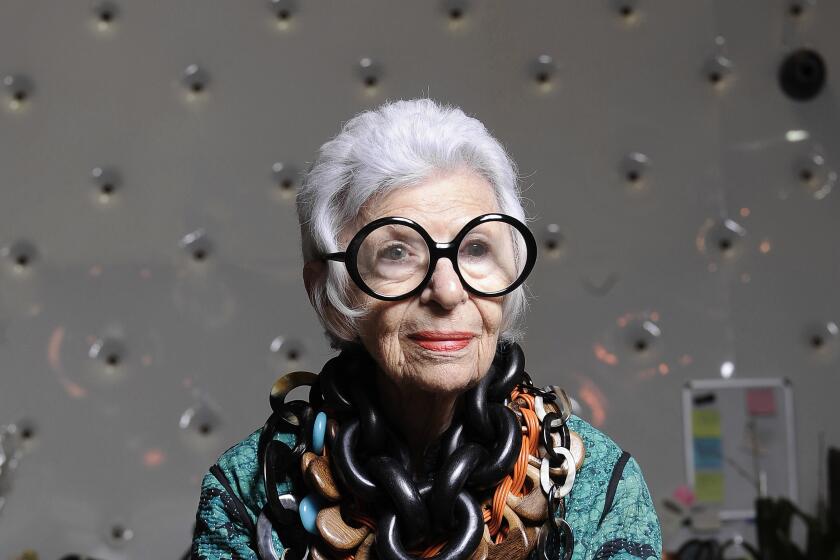A VERY WARY CHRISTMAS
Christmas is back.
A few weeks ago, banners outside every Lowe’s store in the nation announced a sale on “Holiday Trees.” Hundreds of Christians called to complain that the home-improvement chain was shunning Christmas.
The banners came down. Now the fake firs and pines are clearly labeled “Christmas Trees.”
Target, too, started the season with a generic marketing theme. It pushed holiday plates, holiday leggings, holiday ornaments, holiday trees -- with nary a mention of Christmas. Then, more than 500,000 shoppers signed an online pledge to boycott the chain. This week, Target promised to bring more Christmas into its stores as Dec. 25 approaches.
For the third year in a row, Christians nationwide have mobilized to put the holy back in the holiday. And they are winning battle after battle.
Their most publicized victories have come in the retail realm, where they have urged stores to acknowledge that the December shopping frenzy is not just about scoring a cheap DVD player, but also about celebrating Christ’s birth.
Walgreen Co. says it’s too late to change this year’s “holiday” circulars, but in response to dozens of customer complaints, it has promised to bring back the word “Christmas” in its 2006 ads.
Macy’s -- the subject of a small boycott last year -- sent activists a letter touting its use of “Merry Christmas” in ads, store windows and a TV jingle. A Macy’s executive vice president, Louis M. Meunier, pledged that the company would use Christmas in even more marketing next year.
Defenders of Christmas hailed the news with triumph.
But they haven’t stopped at the mall door.
At least 1,500 attorneys have volunteered to sue any town that tries to keep Nativity scenes out of its holiday displays. About 8,000 public school teachers stand ready to report any principal who removes “Silent Night” from the choir program.
The volunteers are armed with a seven-page memo that lays out the case for Jesus in public school concerts, for creches in the classroom and for mangers in city parks (as long as the religious references are balanced with secular songs and decorations).
The memo was written by the Liberty Counsel, a nonprofit law firm based in Orlando, Fla., that is affiliated with the Rev. Jerry Falwell. The firm won a federal ruling in 2003 that said several Massachusetts high schoolers’ free-speech rights were violated when they were suspended for distributing candy canes adorned with religious greetings.
This week, the Liberty Counsel won against two Florida towns that had agreed to let locals decorate a public park with a Christmas tree and a menorah but not a Nativity scene. The nonprofit law firm had no sooner filed suit in federal court than the towns reversed course and permitted a display depicting Jesus’ birth.
Liberty Counsel President Mathew D. Staver has also threatened to sue two Wisconsin elementary schools over choir concerts he says deny the religious nature of Christmas by featuring songs about Santa instead of Jesus.
One of the districts Staver has questioned does include the religious song “Angels We Have Heard on High” in a “holiday sing.” But he remains convinced that secularists have declared a “war on Christmas,” in some cases going so far as to change the lyrics of songs like “Silent Night” to remove any reference to Christ’s birth.
“People often think the safest route is to censor Christmas,” Staver said. “But to be inclusive, you need to recognize all aspects of the holiday.”
That message has even made its way into politics. After a decade as a generic holiday tree, the twinkling conifer at the Capitol is a Christmas tree once more, thanks to a request by House Speaker J. Dennis Hastert (R-Ill.).
Some Christian leaders have taken their campaign to the White House, expressing outrage this week over the annual White House greeting card, which offers wishes for a happy “holiday season.” President Bush, they said, had better start wishing them a “Merry Christmas” instead.
Such demands have some skeptics crying Grinch.
“To call out a team of lawyers to insist that people say ‘Merry Christmas’ -- what could be less in the Christmas spirit?” asked Jeremy Gunn, director of the American Civil Liberties Union’s Program on Freedom of Religion and Belief.
“Don’t they have anything better to do?” he asked.
Christian activists respond that this is one of the most important causes they can imagine.
In their view, God, prayer and faith have been unfairly pushed out of the public square -- out of classrooms, city halls and now shopping malls -- in the name of multiculturalism.
“Even people who aren’t normally churchgoers are saying they’re sick of it,” said Jennifer Giroux of Cincinnati, who has begun marketing $2 rubber bracelets stamped “Just Say ‘Merry Christmas.’ ” In her first week in business, she sold about 5,000.
She and others see the secularization of Christmas as political correctness gone mad. Tying their campaign to such commercial yardsticks, such as the number of times the word “Christmas” is mentioned in an advertising circular, is their effort to elevate the holy, they say, by making sure no shopper, parade-watcher or first-grade choir student can forget what all the tinsel and trimmings are about.
That means insisting that everyone call Christmas “Christmas” -- and nothing else.
“Christmas is not a holiday. A holiday is when you take a day off work and run around playing,” said Randy Sharp, director of special projects for the American Family Assn., which led the Target campaign. Using the word “holiday” for Dec. 25 devalues “our nation’s most holy day,” Sharp said. “And I take offense.”
Shoppers rushing into a Lowe’s in this suburb south of Denver tended to agree.
“We’re celebrating Christ’s birthday,” said Renee Tillitz, 34. “This is not just a time to buy people a lot of junk.”
“It’s Christmas! It’s Christmas! So call it Christmas!” Dick Warner, 77, fairly shouted.
The defenders of Christmas take pains to explain they’re not asking to monopolize the season. They say they’d welcome store displays wishing customers a Happy Hanukkah or a Blessed Kwanzaa or even a Joyous Pagan Solstice along with a Merry Christmas. What they object to is the rigorously neutral message that has become common.
“Renaming a Christmas tree a holiday tree doesn’t make any more sense than taking a menorah and renaming it a candlestick,” said Staver of the Liberty Counsel.
The law firm and other groups have used the “battle for Christmas” as a fundraising pitch. Some activists have also tried to turn the campaign into a political issue. Fox News Channel host John Gibson came out with a book this fall called “The War on Christmas: How the Liberal Plot to Ban the Sacred Christmas Holiday Is Worse Than You Thought.”
Critics on the left say right-wing leaders are creating a crisis to rile voters.
If so, it hasn’t worked on Mary Rittler, 78.
She prefers “Christmas” to “holiday,” but as she pushed her cart through a Lowe’s parking lot, Rittler said the semantic scrap seemed much ado about nothing.
Then she paused.
Musing aloud, she said there was one holiday battle that seemed to her worth fighting.
“You talk about offended -- I’m offended when stores start putting up Christmas lights in November,” she said. “Let Thanksgiving have its day.”






